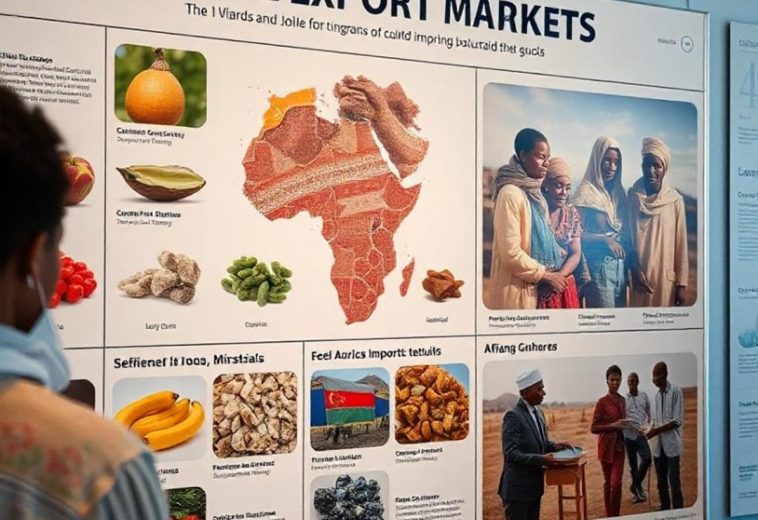Sovereign Wealth Funds (SWFs) are a key instrument in the economic strategies of countries around the world, including Africa. These state-owned investment funds, which typically manage surplus capital, have increasingly become tools for national economic stability, investment diversification, and sustainable development. With global attention turning toward Africa’s economic potential, the role of African Sovereign Wealth Funds cannot be overstated. The question is, what can we expect from these funds, and how will they drive Africa’s growth and investment in 2025?.
The Growing Influence of African Sovereign Wealth Funds
Africa’s SWFs have come a long way since the first fund was established in the early 2000s. With over 20 SWFs across the continent, these funds are evolving into sophisticated investment entities designed to safeguard national wealth and drive developmental goals. By 2025, African SWFs are expected to increase their influence in both regional and global markets.
READ ALSO: Namibia launches sovereign wealth fund
Key Facts and Figures:
The Nigeria Sovereign Investment Authority (NSIA), established in 2011, is one of Africa’s most well-known SWFs, managing assets primarily focused on infrastructure development and economic stabilization.
Libya’s $70 billion wealth fund has recently seen a thaw in its asset freeze, paving the way for reinvestment and rebuilding of the country’s infrastructure, a major boost to North Africa’s investment climate. (Reuters)
According to the African Development Bank, Africa’s infrastructure financing needs amount to around $170 billion annually, with SWFs playing an essential role in bridging the gap.
By 2025, the collective assets of Africa’s SWFs are expected to grow substantially, creating a dynamic investment environment that focuses on sustainable growth, green investments, and infrastructure.
Investment Strategies: Sustainability, Diversification, and Impact
A Shift Towards Green and Sustainable Investments
One of the most significant trends shaping the future of African SWFs is their growing focus on sustainability. As the world faces pressing environmental challenges, African sovereign funds are increasingly aligning their investment portfolios with global sustainability goals. According to the United Nations Environment Programme, African nations are well-positioned to benefit from green investments, particularly in the renewable energy sector.
In 2025, African SWFs are expected to invest heavily in renewable energy projects, including solar, wind, and hydroelectric power. This shift is particularly crucial given Africa’s abundant natural resources and the growing demand for clean energy solutions both locally and globally. Additionally, these funds are exploring investments in green bonds and climate-resilient infrastructure.
Nigeria, for example, has committed to financing clean energy projects, with the NSIA allocating significant portions of its funds to renewable energy development.
South Africa, with its ambitious renewable energy goals, will likely see an uptick in SWF-backed investments in solar and wind energy projects, crucial to meeting the country’s sustainability objectives.
Infrastructure and Economic Diversification
Another area where African SWFs are expected to make substantial strides is in financing infrastructure development. The need for robust infrastructure across Africa—ranging from roads and railways to urban development—is a significant driver of economic growth. The African Union estimates that infrastructure deficits cost the continent over $68 billion annually in lost productivity.
In 2025, we can expect African SWFs to be at the forefront of financing large-scale infrastructure projects, including smart cities, energy grids, and transport systems. These investments not only address the continent’s infrastructure gap but also promote economic diversification by creating jobs and stimulating local economies.
Regional Developments and Opportunities in 2025
Strengthening the Role of the NSIA
Nigeria, as Africa’s largest economy, will continue to play a leading role in the development of sovereign wealth funds. The Nigeria Sovereign Investment Authority (NSIA), which oversees investments in infrastructure, healthcare, and the economy, is expected to increase its focus on economic diversification. By 2025, the NSIA is set to invest in sectors beyond oil and gas, such as agriculture, technology, and finance, to mitigate the risks posed by the volatile oil market.
The Rise of New Sovereign Wealth Funds
In 2025, Zambia plans to establish its own SWF to support national economic recovery. The fund will aim to build financial reserves for future generations while focusing on investing in sectors such as education, healthcare, and public infrastructure. As Zambia looks to diversify its economy away from copper dependence, the sovereign wealth fund is expected to be a key enabler of this transformation.
Attracting Private Investment into Public Infrastructure
South Africa, facing an infrastructure crisis, will leverage its sovereign wealth funds to attract private sector investments into public projects. The government’s infrastructure plan, which seeks to boost economic growth, aims to create new jobs and stimulate the economy. By 2025, we anticipate a greater influx of SWF-backed investments into the transport, energy, and water sectors, which will provide long-term benefits to the South African economy.
With an increasing focus on sustainable investments, infrastructure, and diversification, these funds are positioned to address both current challenges and future opportunities. As they continue to evolve, effective governance and strategic investment decisions will be crucial to ensuring that these funds contribute to long-term economic growth and stability across the continent. The next few years will be pivotal in determining how well African Sovereign Wealth Funds can support development goals and enhance regional and global economic influence.




